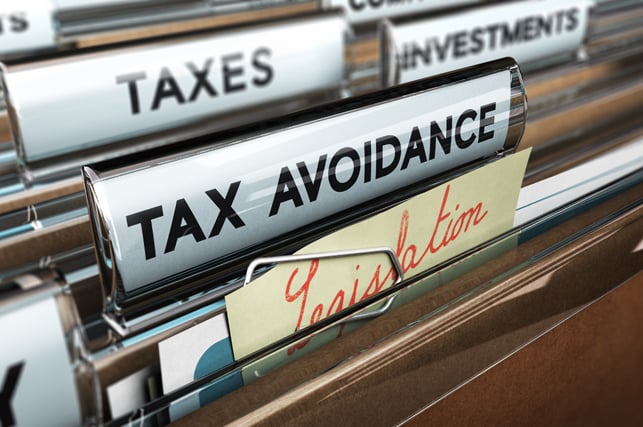
Recent Work
2146 items
What to Watch in the States: State Earned Income Tax Credits (EITC) on the Move
March 24, 2017 • By Misha Hill
While every state’s tax system is regressive, meaning lower income people pay a higher tax rate than the rich, some states aim to improve tax fairness through a state Earned Income Tax Credit (EITC). Federal lawmakers established the in 1975 to bolster the earnings of low-wage workers, especially workers with children and offset some of […]
Our ever-changing economy demands that lawmakers update our tax laws to keep pace. Take, for example, the growth of online sales. As recently as six years ago, Amazon, the nation’s biggest online retailer, only collected sales tax on consumer purchases in five states. This meant that state treasuries were missing critical sales tax revenue, a […]
Tax Justice Digest: 50-State Analysis of GOP Health Care Plan, Ensuring State Sales Taxes Keep Pace with Our Changing Economy
March 23, 2017 • By ITEP Staff
In the Tax Justice Digest we recap the latest reports, blog posts, and analyses from Citizens for Tax Justice and the Institute on Taxation and Economic Policy. Here’s a rundown of what we’ve been working on lately. State-by-State Analysis of GOP Health Care Plan By now, it’s widely known that the GOP health care plan […]
GOP Healthcare Bill Cuts Insurance Coverage for Millions to Pay for Tax Cuts for the Wealthy; ITEP State-By-State Estimates
March 22, 2017 • By Richard Phillips
The House GOP’s American Health Care Act is being pushed quickly through the legislative process, with a vote on the House floor scheduled for as early as Thursday. The Republican legislation seeks to pay for the cost of repealing highly progressive taxes enacted as part of the Affordable Care Act by making substantial cuts to […]
This week in state tax news saw major changes debated in Hawaii and West Virginia and proposed in North Carolina, a harmful flat tax proposal in Georgia, new ideas for ignoring revenue shortfalls in Mississippi and Nebraska, an unexpected corporate tax proposal from the governor of Louisiana, gas tax bills advance in South Carolina and […]
For decades, Amazon.com helped its customers dodge the sales taxes they owed to gain an advantage over its competitors. But as the company’s business strategy has changed, so has its tax collection. As recently as 2011, the nation’s largest e-retailer was collecting sales tax in just 5 states, home to 11 percent of the country’s […]
Affordable Care Act Repeal Includes a $31 Billion Tax Cut for a Handful of the Wealthiest Taxpayers: 50-State Breakdown
March 17, 2017 • By Matthew Gardner
Congressional Republicans have proposed legislation that would repeal the Affordable Care Act (ACA), including rolling back a number of tax changes that were enacted to pay for the ACA's health care expansions. Among these tax changes are two targeted income tax increases that took effect in 2013, each of which apply only to a small number of the wealthiest Americans: the net investment tax and additional Medicare tax. Repealing these two taxes would cost over $31 billion a year if implemented in tax year 2016, and 85 percent of the benefit from repealing these taxes would go to the best…
State tax debates have been very active this week. Efforts to eliminate the income tax continue in West Virginia. Policymakers in many states are responding to revenue shortfalls in very different ways: some in Iowa, Mississippi, and Nebraska seek to dig the hole even deeper with tax cuts, while the Missouri House’s response has been […]
A growing number of Americans are getting rides or booking short-term accommodations through online platforms such as Uber and Airbnb. This is nothing new in concept; brokers have operated for hundreds of years as go-betweens for producers and consumers. The ease with which this can be done through the Internet, however, has led to millions of people using these services, and to some of the nation's fastest-growing, high-profile businesses. The rise of this on-demand sector, sometimes referred to as the "gig economy" or, by its promoters, the "sharing economy," has raised a host of questions. For state and local governments,…
For years, the number one tax policy talking point from corporate lobbyists has been the claim that the United States has the highest corporate tax rate in the world. The story then goes that this high tax rate is driving away business and Congress should move to dramatically lower it. A new study by the […]
Tax Justice Digest: New Eight-Year Data Reveals Corporations Aren’t Paying Their Fair Share
March 9, 2017 • By ITEP Staff
In the Tax Justice Digest we recap the latest reports, blog posts, and analyses from Citizens for Tax Justice and the Institute on Taxation and Economic Policy. Here’s a rundown of what we’ve been working on lately. New Study Explores the 35 Percent Corporate Tax Myth A comprehensive, eight-year study of profitable Fortune 500 corporations […]

Profitable corporations are subject to a 35 percent federal income tax rate on their U.S. profits. But many corporations pay far less, or nothing at all, because of the many tax loopholes and special breaks they enjoy. This report documents just how successful many Fortune 500 corporations have been at using loopholes and special breaks over the past eight years. As lawmakers look to reform the corporate tax code, this report shows that the focus of any overhaul should be on closing loopholes rather than on cutting tax rates.
This week brings more news of states considering reforms to their consumption taxes, on everything from gasoline in South Carolina and Tennessee, to marijuana in Pennsylvania, to groceries in Idaho and Utah, and to practically everything in West Virginia. Meanwhile, the fiscal fallout of Kansas’s failed ‘tax experiment’ has new consequences as the state’s Supreme […]

Thursday, March 8 is International Women’s Day. The day draws attention to the progress that has been made and the work that still needs to be done in advancing gender equality. Many campaigns on issues like equal pay or paid family leave acknowledge that economic policies impact women and men differently. But we often overlook […]
GOP Obamacare Repeal Would Slash Taxes on the Wealthy At the Expense of Middle- and Low-Income Families
March 7, 2017 • By Richard Phillips
On Monday, House Republicans released legislation that would repeal or modify many of the most significant portions of the Affordable Care Act (ACA). A central theme of the GOP plan is that it would significantly cut funding for low- and middle-income families’ health care, while eliminating the ACA’s expansion of Medicare taxes on the wealthiest […]
